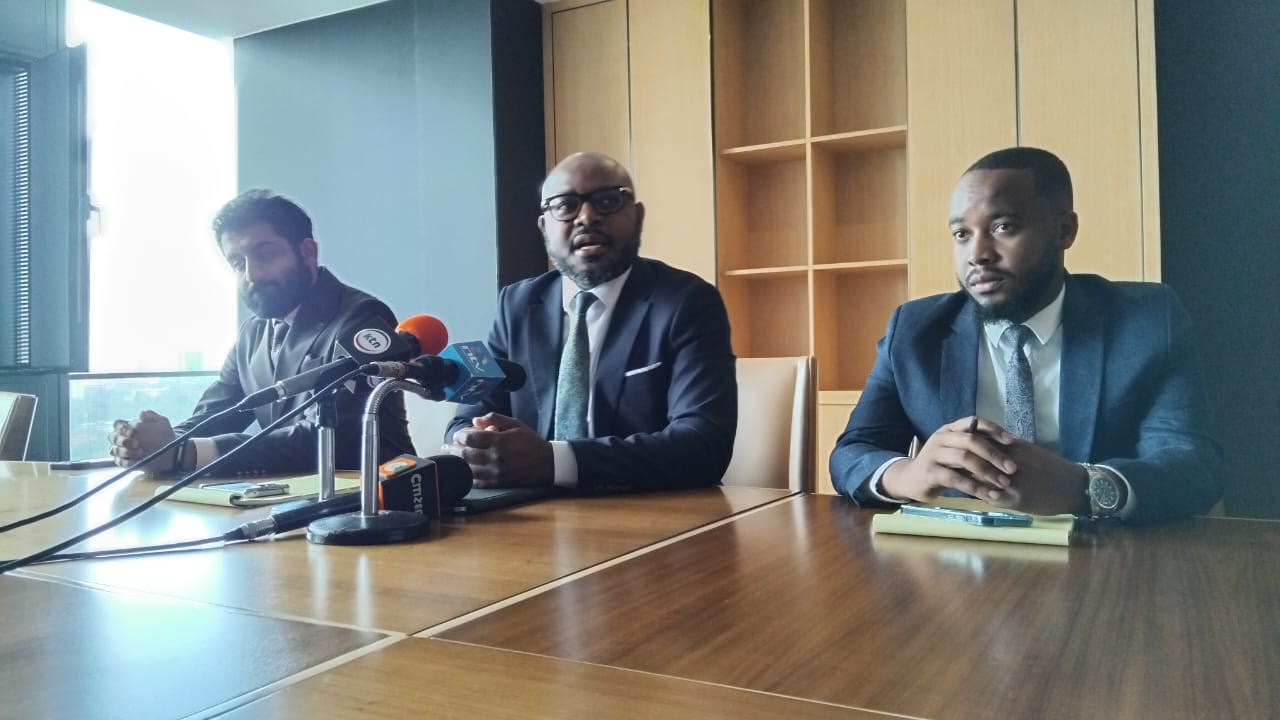 Mediheal Hospital lawyer Conrad Maloba with his team, during the media briefing in Nairobi on April 22, 2025.
Mediheal Hospital lawyer Conrad Maloba with his team, during the media briefing in Nairobi on April 22, 2025.Some of the Kenyans allegedly paid for their kidneys have volunteered to appear before the two teams probing Mediheal Hospital, lawyers for the hospital said.
Conrad Maloba, the lead lawyer for the hospital, said the donors are ready to "confirm" they were not paid to give their kidneys.
Selling a body organ in Kenya is strictly prohibited under the Health Act. The only exception is reimbursement for reasonable costs incurred, such as transport and medical expenses.
Maloba said they are also ready to open patient files to the public to prove the hospital did nothing wrong.
At least two teams – the national assembly committee on health and a taskforce appointed by Health Cabinet Secretary Aden Duale – are expected to probe the alleged kidney-for-cash allegations facing the hospital.
The hospital has appointed Conrad Law Advocates to represent it in the probe.
Maloba said they intend to bring the patients who were allegedly paid, and their files.
“We're asking the government, come and audit us. The patients are there, we have the records. The patients are willing to come and testify,” he told journalists on Tuesday.
“The teams are looking at 372 to 400 cases. Each of these files is available. The audit is a scientific process, meaning the answers will be accurate through scientific precision. So, we are not hiding anything.”
The hospital was initially audited between December 5-8, 2023, by a committee appointed by former Health CS Susan Nakhumicha.
The 12-member team was led by Dr Evelynn Chege of the Kenya Blood Transfusion and Transplant Service (KBTTS), who was suspended by Duale on April 17.
Their report was presented by Dr Maurice Wakwabubi, the former acting
CEO of the Kenya KBTTS. He was also suspended last week.
The 16-page report indicates that Mediheal conducted 372 kidney transplants between 2018 and 2023 in Eldoret.
In contrast, the nearby national Moi Teaching and Referral Hospital had conduced just 126 transplants since 2006.
That committee found that donors appeared before the hospital ethics committee prior to the surgery and submitted legal affidavits and family statements stating the altruistic nature of the donation and acknowledgment and consent to the process of the transplantation.
Maloba on Tuesday said those affidavits are available and will be open to the public.
The 2023 team did not accuse Mediheal of any wrongdoing. “In our opinion the committee thinks there is suspicious activity for trafficking but there is no sufficient evidence,” their report says.
The team commended Mediheal noting that all consent forms for donors were signed by an advocate.
However, the report listed several suspicious activities. For instance, it noted that one name, Yusufu, appeared in many foreign patients files as next of kin.
“There is need to ascertain this status and investigate why this name is listed as such and the relationship with the foreign recipients and foreign donors.”
The team was also concerned about the high number of foreign donors and foreign recipients coming to Kenya for transplants.
Some of those nationalities received kidneys at Mediheal included 37 Israelis, eight from the Democratic Republic of Congo, eight Ugandans, six Burudians and South Sudanese among others.
“The reasons given as to why the foreign recipients come to seek medical treatment in Kenya cannot be ascertained,” the team said.
“We must be careful to protect vulnerable donors who may be coerced or paid to give away a kidney. All measures including a robust legislative and regulatory framework must be in place, with standardisation of consent to donate and receive the kidneys.”
On Monday this week, one of the team members, nephrologist Dr Philip Cheptinga, alleged that the report was doctored to favour the hospital.
He claimed that some of the donors listed as coming from countries such as Azerbaijan were boys from western Kenyan places such as Uasin Gishu and Kakamega, who were paid.
Maloba dismissed that allegation.
“We (Mediheal) did not appoint a task force. This task force was appointed by the Ministry of Health. They came in, they gave a report. If one or two of those experts came out and said that this was doctored, we now have a second opportunity for another audit to be undertaken,” he said.
“We're being given a second opportunity for an audit and it will confirm the same.”
He said from the 372 transplants, there were only about 10 complaints
from patients.
“With respect to the process on the kidney transplant, I can confirm that we have records. 99.9 per cent success rate. I can confirm that right here,” he said.
However, Maloba acknowledged gaps in the Kenyan law governing solid organ transplants. Currently, they are governed under the Health Act 2017, but there are no regulations to operationalise that section of the law.
“It's true. Certain regulations are not in place, but that is not on us. That is on the legislature,” he said.
“And this audit process, by the way, will also result in recommendations on how patient-donor relationship are undertaken, during organ transport.”
The 2023 MoH committee also urged the Ministry of Health to fast track the Bill and Policy governing transplant services in Kenya.
“MoH develop a legislative and regulatory framework to safeguard against organ trafficking and transplant tourism. National standards and regulatory frameworks in transplant services will seal legal loopholes that can be exploited to allow for clandestine unregulated transplants,” it said.











